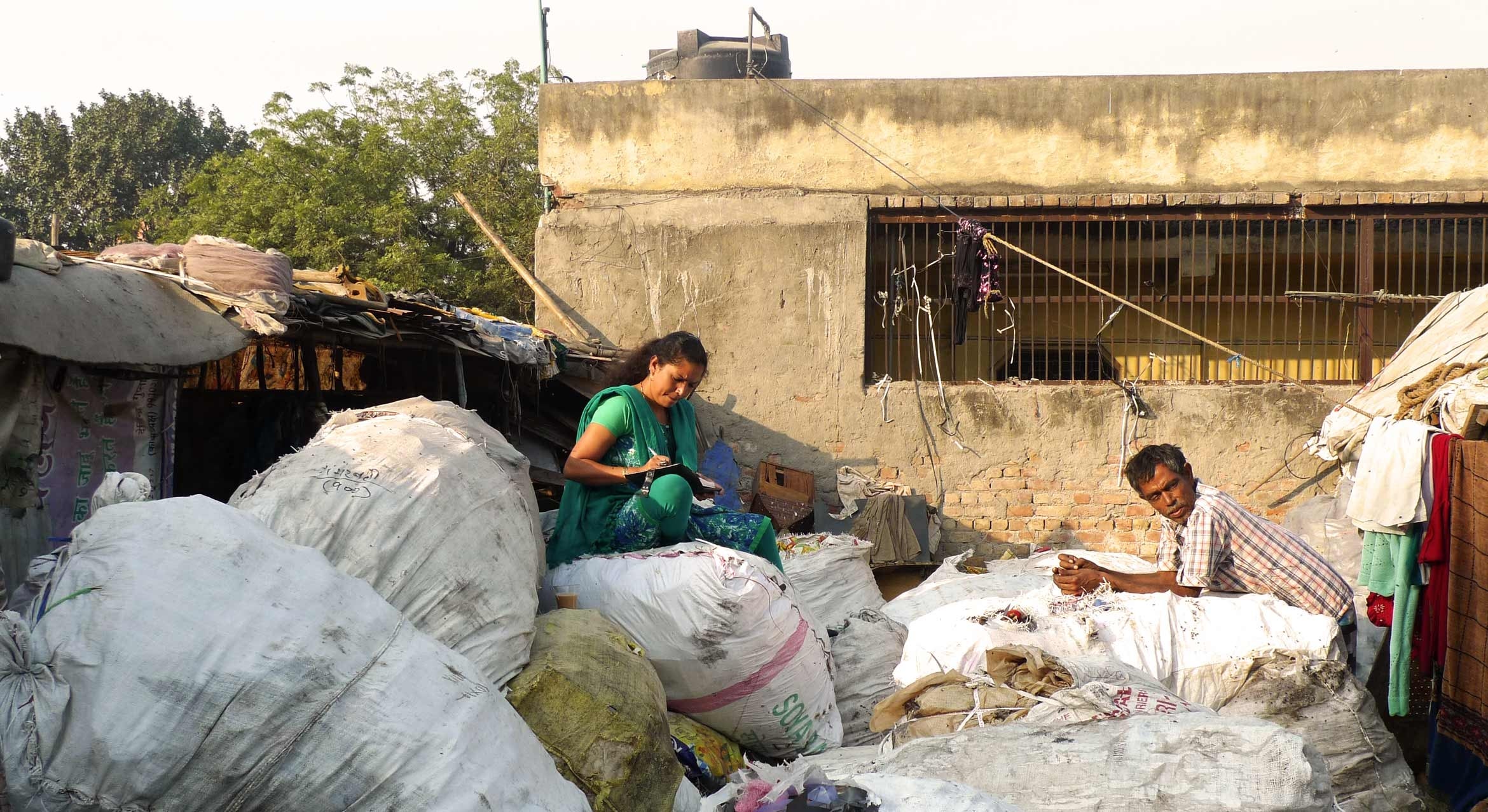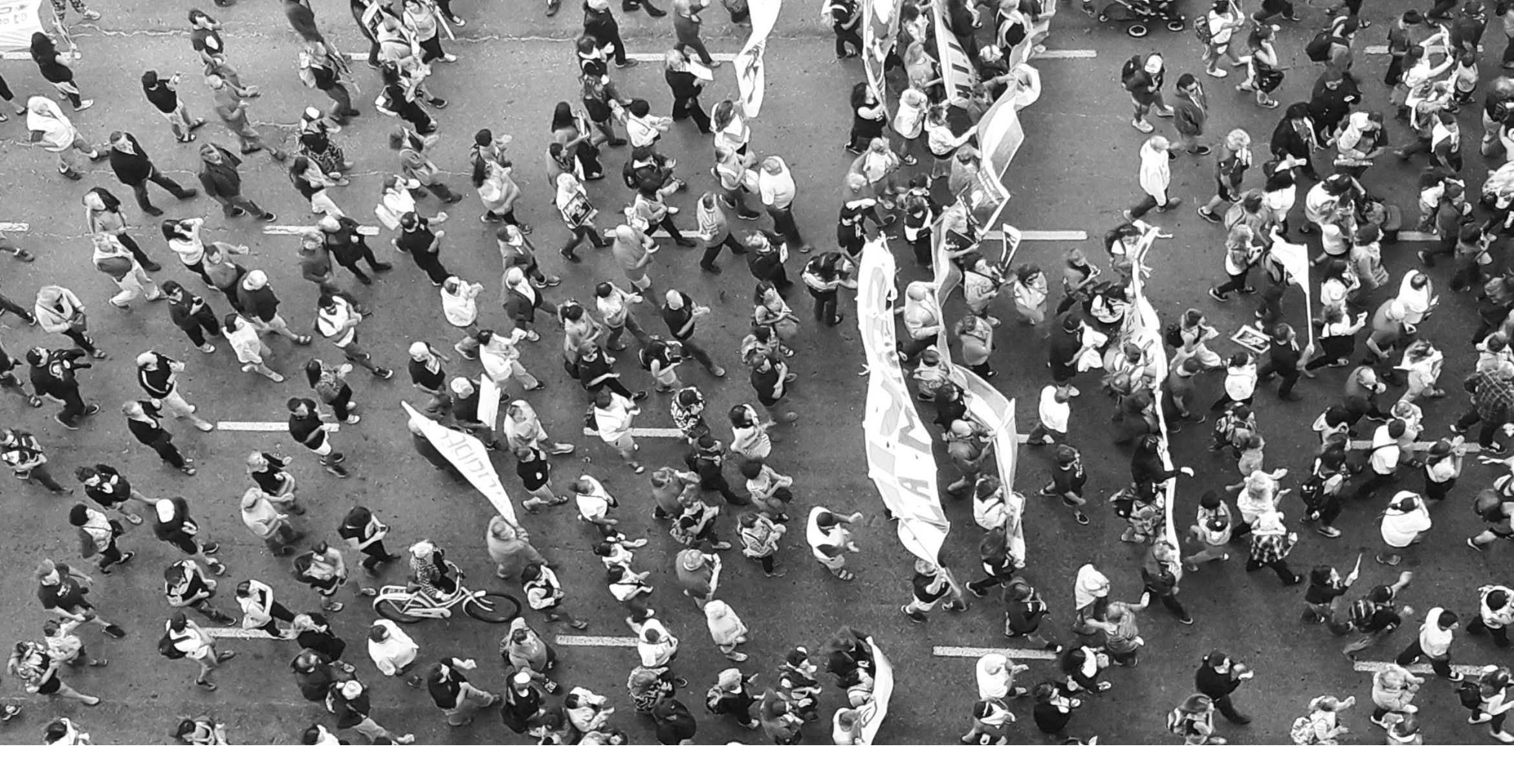
Who gets to build wealth — and who gets left behind?
A new article by UC Santa Barbara sociologist Dana Kornberg offers a framework for understanding how race, caste and institutional access shape not only what people earn but the economic systems they’re allowed to enter.
“We often think of inequality as a single continuum — some people just have more than others,” Kornberg said. “But in reality, people are navigating entirely different systems with different rules, shaped by race, caste and access to institutions.”
Published in the journal of the International Sociological Association, Kornberg introduces the concept of transactional pathways — a term first coined by anthropologist Jane Guyer — to trace how people navigate economic systems shaped by social hierarchies.
Kornberg applies the framework to the informal waste economy in Delhi, India, where she has conducted fieldwork for more than a decade. “Transactional pathways are a way to trace how people are included in or excluded from accumulating wealth over time through the institutions they can access,” she said in an interview. “That includes not just what people can afford, like a car or a house, but what those things mean in terms of social status.”
Her analysis connects status groups to distinct institutional channels, showing how not only material outcomes but also the perceived legitimacy of work are affected. In Delhi, she observes that informal recycling — performed primarily by workers from oppressed caste and Muslim communities — involves door-to-door collection and manual sorting. Formal recycling, by contrast, is typically managed by dominant caste members using machinery, government contracts and other forms of institutional support.
The divide, Kornberg argues, reflects more than economic class. “These aren’t just different jobs,” she said. “They reflect separate institutional systems that are tied to caste and social value, and that determine who can accumulate and who is left behind.”
In one case study, Kornberg follows a woman she calls Salma, who spent decades collecting recyclables before saving enough to build a concrete home in her native village. While the achievement represents progress, Kornberg points to it as an example of constrained mobility. Movement is possible within a given pathway, but the broader institutional boundaries remain intact.
Though focused on India, the article outlines a broader pattern. Kornberg originally planned to include a U.S. case study on land contract home buying in Detroit, where Black residents historically were denied access to traditional mortgages and routed into predatory arrangements. The details differ, she said, but the underlying logic is the same: institutional access is unevenly distributed, producing separate and unequal paths to economic participation.
Kornberg, who specializes in urban, environmental and economic sociology, studies how economic practices intersect with status, identity and institutional power across global contexts. Her current book project “The Garbage Economy: Caste Capitalism and the Persistence of Informal Recycling in Delhi” (forthcoming from Oxford University Press) received the 2025 Joseph W. Elder Prize in the Indian Social Sciences from the American Institute of Indian Studies.
“Even if two people work equally hard, they may be navigating entirely different systems,” she said. “This helps explain why inequality persists, not just as a matter of wealth, but of how wealth is built and recognized.”




